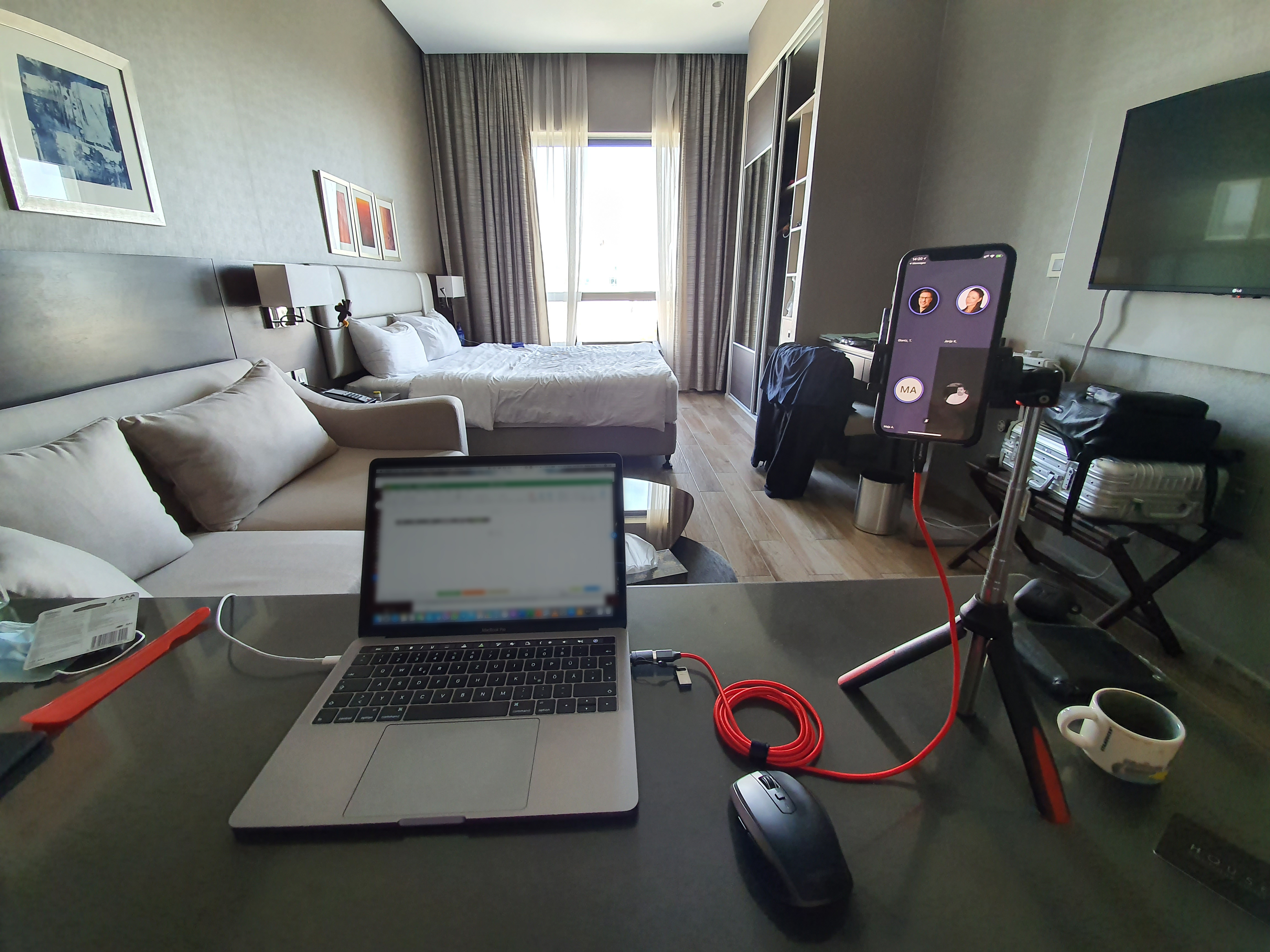Our reality has suffered significant changes. The epidemic of the novel coronavirus COVID-19 has grown into a full-blown pandemic, and literally, overnight the reality of our lives became very different. The way we work, the way we socialize, the way we spend our days, the way we shop and the way we read have all changed. These changes were possible thanks to the technology which is deeply embedded in our lives because humanity now lives in the middle of something called the digital revolution. Digital transformation “buzzword“, which has been going on in the past couple of years, is nothing more than the application of the digital technologies in our everyday work, aimed at increasing the efficiency and quality and probably lower the price of the work process.

Right up until yesterday, some elements of digital transformation, like working from home, were almost unimaginable for some companies. Many people wondered if it was even possible, if people will keep working hard, or if all the processes would work efficiently. And then, overnight, it all became possible. The IT department at the I&F Grupa, which operates in 12 countries, has for many years now worked on the application of all modern technologies while making sure the implementation is secure. At the end of last year, when agency Drive was certified under the ISO standard 27001 for digital marketing, the audit showed that we were ready. And COVID-19 has proved that. The strength of our people can be shown wherever they are, and wherever they work for our clients. The pandemic caught me in Jordan, which has closed its borders, and I hold daily meetings with our teams without any problems.
This pandemic opens and will continue to open a lot of questions about the further direction of the digital transformation. Some believe that no matter what happens during this period, the companies need to continue and invest in further digital transformation in order to be ready for all the challenges that will come after the pandemic ends, but also for those which might happen if a new wave of infection comes, during this fall or winter. Consultants advise that the level of investments has to be maintained so that companies wouldn’t lose the position they had before the pandemic, compared to their competitors. And that surely is the right way of thinking. Of course, we can discuss which direction the investments or maintenance should go, whether we should be considering on-premises equipment or a serious and complete migration to cloud services, but what shouldn’t be forgotten is security. In the times which are now behind us, quite a number of various services started working within different start-up companies and has almost virally (the word virally now has a completely different “weight” than it had before) became popular. Let’s take Zoom, the software for video conferences, as an example. In the past couple of days, it has shown that it doesn’t take much care of the security and privacy of its users. The mistake of the company is that they opted for a popular solution which doesn’t apply all the rules of enterprise security and it could cost them a lot in the future. An earlier practice which has luckily been forgotten, which was thinking hackers are not criminals but “children” at play, and viewing copyright infringement on the Internet with almost a kind of sympathy, has today grown into an almost gullible use of various applications and Web services, without considering what happens to the privacy of the data and their security on those services. Things like this led us to GDPR, or as we call it the Law on Personal Data Protection, but just a year and a half after it was adopted this law is under great moral pressure. A question arises about people today being ready to give up on data protection in order to secure a little more freedom or security for themselves. In China, where there are applications which follow the movement of the citizens, their meetings with other people, money consumption and financial transaction, an algorithm has been developed which gives people a green, orange or red status, which is defined by the probability of their exposure to the COVID-19 virus, and in the case of an infection, the epidemiologists can easily find all the potentially exposed persons. In a couple of EU countries, there are pilot projects where citizens can volunteer to be tracked through their mobile operators, their credit card transactions, and in return, they receive more freedom of movement. So we are maybe reaching a point where we will be able to give up a little privacy for a little more freedom. Another example is databases of various retailers and brands, which were almost the main topic of GDPR. People in some countries, who up until recently complained about the frequent offers they received are now asking to receive those offers so that they could order goods and services online.

The economy of sharing, which was up until yesterday a frequently mandatory element of talks about the future, comes under question today. Up until yesterday, the main topic was if electric cars of the future will drive us to work, after which they will be a part of some car-share service and will drive, by themselves, other people around town and earn money for their owners while they are at work, and at the end of the day pick them up and drive them home. Today, would you mind if in between your two rides some 10 strangers drove around in your car and maybe leave COVID-19 virus laying somewhere in it? It is a great unknown whether the economy of sharing will survive and in what form, or will it evolve into an economy of isolation and what that will exactly mean. Also, a question before us is whether brands which traditionally gave the „last mile“ contact with the consumer to someone else will continue to do so, or will they have to consider direct-to-consumer delivery? Will, for example, your favourite brand of snacks have to figure out a way of delivering snacks to you and your friends, while you are watching a movie together on Netflix while being in your own apartments? And will that be the job of the brand or the retail chain?
The technological transformation we are going through right now under the influence of the invisible „enemy“ doesn’t necessarily have to mean coming up with new technologies – it is often enough to find a new use for the already existing technology. A good example is an SMS (the first SMS was sent in 1992) which many countries use as the main channel for informing the public about important local information or warnings. Social networks. Messaging applications. E-mail. VPN. Netflix. YouTube…The list is endless, and the only thing to consider is whether some of these technologies could hold some commonsense security risks.
Today, on Wednesday 08th of April at 4.30pm, as part of the first WeCann Live Webinar, Relja Jović will speak on the topic of data protection in the “Corona Age” via the Microsoft Teams platform.